Video Game Addiction Treatment – The Ultimate Guide (2022)
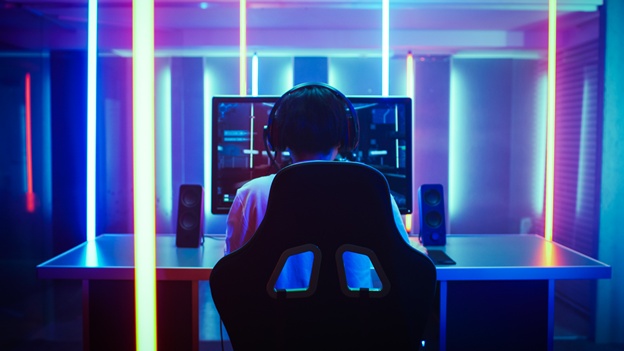
Treatments for video game addiction can be more variable than other addictions based on the uniqueness of each person’s situation and the games they are addicted to. This form of impulse control is difficult to manage as we spend the majority of our lives on or surrounded by technology that facilitates playing video games. Research shows that video game addiction is not only an impulse control problem but rather an unhealthy habitual use. People addicted to video games feel withdrawal symptoms and cravings just as any other addict would.
Unlike most other addictions, video game addiction has only been recognised by the World Health Organisation (WHO) within the last 4 years. The DSM-5 now consider it a diagnosable disorder going by Internet gaming disorder or IGD. It is therefore much more important to discuss and become familiar with the most effective treatments to make up for “lost time”, so to speak. People suffering from video game addiction are finally being given a place to turn to.
To give a bit of background information on video game addiction we’d first like to discuss the effects that video games have on the brain and the symptoms that we might expect when developing an addiction.
Content
How Video Games Effect Our Brain
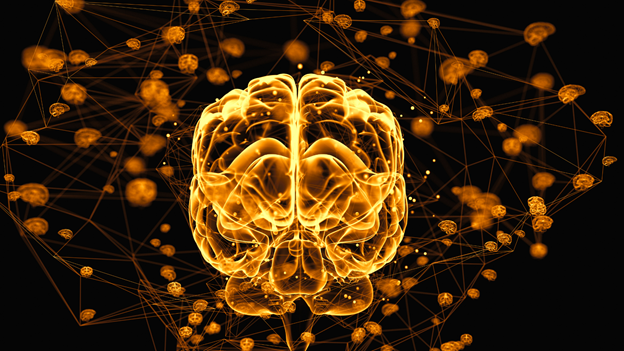
Behavioural addictions affect the reward centres of the brain. By carrying out an activity like gaming which stimulates our reward centres with accomplishments, levelling up and progression within the game, the brain releases a neurochemical called dopamine.
Dopamine has many important roles in the body but it is primarily responsible for the feel-good sensation we get when we accomplish something. Thus the sensation serves as motivation for the individual to play more video games. Through long hours of repeating the behaviour, there is an overproduction of dopamine leading to a desensitisation of the receptors or tolerance to dopamine, if you will.
This desensitisation means that addicted gamers must play more in order to feel the same level of satisfaction that they used to get when they first started playing. The tolerance they have developed to dopamine usually drives their compulsion to play video games; stopping the addictive behaviour altogether will lead to withdrawal symptoms and uncomfortable sensations.
However, once the gaming addict has given their brain significant time away from this type of stimulation the brain chemistry can begin to normalise and decrease their affinity towards playing video games. While some may still feel remnants of their cravings months after their addiction has been treated. Most video game addiction self-help programmes address this with various therapeutic techniques.
Symptoms Of Video Game Addiction
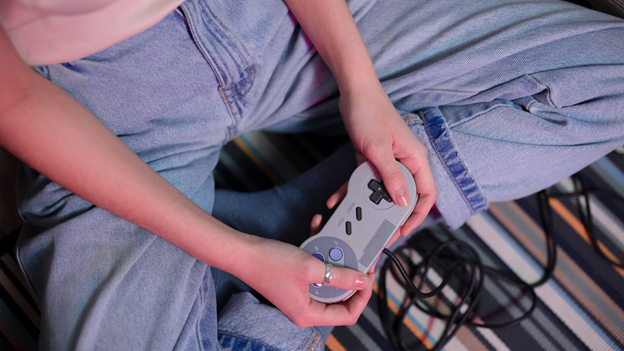
As we previously mentioned the World Health Organisation has recognised video game addiction as an official mental health disorder. Based on satistical data and investigations carried out across the world. The disorder has been included in the (ICD) The International Classification of Diseases which is the global standard for reporting health conditions and diseases used by medical practitioners to help with diagnosis.
The criteria for diagnosis of video game addiction follows: There must be significant impairment of personal, family, social, educational, occupational, or other important areas of functions over a 12 month period due to excessive video game usage.
Based on these principles here are the main symptoms of video game addiction:
- Excessive video game usage
- Damage to relationships
- Loss of interest in other activities except gaming
- Obsessive thinking about video games
- Poor performance in school or work
- Poor sleep quality and insomnia
- Lying to others to conceal gaming habits
- Neglecting important responsibilities to play video games
- Repetitive strain injuries like tennis elbow and carpal tunnel
- Lack of energy and motivation
- Decline in mental health and general mood
If you or any of your loved ones have been experiencing any of these symptoms then we recommend seeking help. A lot of the time video game addiction can be the result of underlying comorbid conditions such as anxiety, depression, OCD or ADHD. Hence we always recommend that a local medical professional should be consulted in order to rule any of these problems out.
Video Game Addiction Treatments
Now that we understand a bit about the causes and symptoms of video game addiction, let’s get into the most effective video game addiction treatments.
Cognitive Behavioural Therapy (CBT)
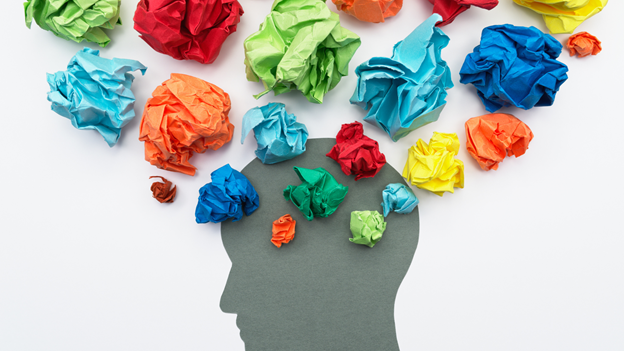
CBT is one of the main methods of treating video game addiction. If you have read any of the other articles on our blog we always explain the significance of CBT in the lives of recovering addicts.
So, what is it? CBT is the process of changing the way you think and react to specific situations, thoughts, or emotions. It is based on “neuroplasticity” the concept that we can change our thought pathways and remodel them into more healthy and sustainable thinking patterns. It is the realisation that the way we think, feel and act are all intimately linked.
Often CBT is the first port of call when managing any form of impulse control with in-person therapy. Depression, OCD, insomnia and many other conditions use this technique as one of the main principles to aid their recovery. The relevance of CBT to gaming addiction is that studies have shown compelling evidence that gaming addicts who completed a course of CBT showed a significant decrease in their addiction symptoms and time spent gaming.
It is often the person’s reaction to their addictive triggers that lead to compulsive playing. CBT’s intervention and management alter the way we think about and ultimately respond to these triggers. For instance, if someone’s feeling of stress and impending deadlines leads to them playing video games, CBT will retrain the mind to healthily respond in a way that is more productive and sustainable.
Mindfulness

Mindfulness focuses on engaging in all of your senses at the present moment, free of judgement. It grounds us in the moment not worrying about our past or future. As you can understand this skill is invaluable to the addicted brain, being able to ground themselves amidst an emotion-laden craving storm.
Mindfulness has been gaining popularity in recent years, understandably so given the increasing pace and stimulation, technology has added to our everyday lives. However in the field of video game addiction studies conducted by Garland et al illustrated that individuals that participated in an 8-week mindfulness-oriented recovery enhancement programme, (MORE) showed significant reductions in their cravings and maladaptive behaviour related to playing video games post-treatment. The mindfulness intervention also reduced the likelihood of relapse through teaching awareness of cravings and deconstructing them down to their basic sensorial sensation.
Many of you might be thinking this miraculous treatment must cost a fortune. However, mindfulness is a skill that can be practised through a variety of meditations and exercises that do not cost an arm and a leg. Here are some of the most redeeming qualities of Mindfulness;
- Everyone Can Do It – Mindfulness does not require special equipment, it is cost-friendly and can be done anywhere at any time.
- Relaxation – This is often confused with mindfulness, but here is the distinction. Mindfulness is not relaxation. But, relaxation does facilitate mindfulness and vice versa. Good mindfulness practice can help you to relax as it is easier to practice mindfulness in a relaxed state. A mutually beneficial relationship for anyone looking to try it.
- Safety – Mindfulness is completely safe, pragmatic, and has no side effects therefore it can be combined with other treatments.
- Multiple Health Benefits – Not only does mindfulness help with video game addiction but it has numerous other health benefits such as improving mental health, boosting mood, and reducing the risk of other physical health conditions
Mindfulness can be practised through activities such as the mindful eating exercise. This turns the experience of eating food into a mindfulness practice. The individual can be audibly guided initially in acknowledging and admiring each aspect of the process of eating. From picking up the food and observing the way it looks, feels, and smells to the sensations you feel and taste when chewing and swallowing. The purpose of this is to teach the individual to be present in the moment and can be applied to many of life’s day-to-day tasks.
Mindfulness can also be practised through meditation. Many sceptics have the misconception that meditation connotes sitting cross-legged under a tree and humming mantras, however, this is a poor portrayal of modern meditation methods as it is one of the most effective ways to practice mindfulness and treat video game addiction. One of the most successful treatments for video game addiction is the mindful breathing exercise.
This act of meditation simply states that you should close your eyes and guide yourself, or be guided by another voice into a deep state of relaxation. Here we can focus on breathing, slowing it down, and being in the present. We should acknowledge our thoughts in this state and allow them to drift past. If we find our mind starts to wander into the past, future or elsewhere we bring our attention back to our breath and therefore back to the present. Not to worry if you’re unsure of how to do this, if your meditation is guided they will take you through this step by step.
The typical time for this exercise when you begin is around 5 minutes a day. But you can increase the time the better you get. Practising mindfulness is a skill so it will take time and dedication to improve your ability to meditate and mental state. This can prove useful in a gamers life as manageable amounts of time can be set aside to practice each day.
Again much like other mindfulness practices, mediation comes with many additional benefits;
- Managing stress
- Reducing negative emotions and anxiety
- Increases self-awareness
- Improving mood and boosting energy
- Increasing patience and tolerance
The latter points are important in treating video game addiction as some of the major symptoms include agitation and low energy or motivation.
Acceptance and Commitment Therapy (ACT)
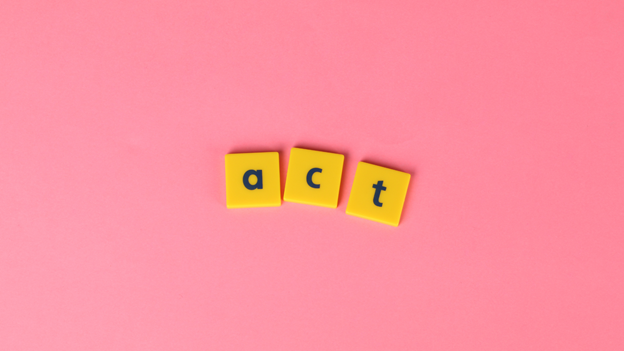
ACT is closely related to mindfulness and CBT in the sense that we are working with our thoughts to build a healthier relationship with them. ACT in video game addiction treatment focuses on the goal of accepting, acknowledging then letting go of the negative thoughts and anxieties that come with it.
Often the shame of being addicted and wanting to quit causes people to try and suppress and fight against their negative thoughts and impulses. This leads to “rumination” prolonging and intensifying the negative thoughts you are suffering with. Rather simply becoming aware of them and their existence as another thought in your mind, with no additional power over you or your actions, can help an individual break their addictive behaviours.
One important point to note about acceptance that many people struggle with is, acceptance does not remove the embarrassment or judgements that come with our negative thoughts but teaches us to deal with their existence. Furthermore, acceptance is not giving in to our negative thoughts.
Most ACT programmes will break it up into two sections with their own relevant exercises. Defusion and Valued actions.
Defusion – Defusion relies on taking power away from your negative thoughts by simply allowing them to exist without attaching an emotional burden to them. For a video game addict their impulse to play video games or triggers can come with a great deal of guilt and anxiety, so changing their relationship with them can be very liberating. One proven exercise to help with defusion is a trigger journal. This consists of writing down every time an individual felt like gaming; why they wanted to play, the time they wanted to play, and how they felt. Writing these urges and thoughts down on paper helps to detach the person from them and see them as notes in their trigger journal.
Valued Actions – Once becoming aware and accepting of the negative thoughts individuals must make the right decisions in the moment that are consistent with their values and goals of breaking their addiction. Exercises that can help with these values are visualisation meditations that help determine what is important to them on their journey. Some of the small personal goals may consist of more productivity, better grades, or improving their relationships with loved ones. Valued actions in ACT are the end result that contributes toward these goals.
Detoxification
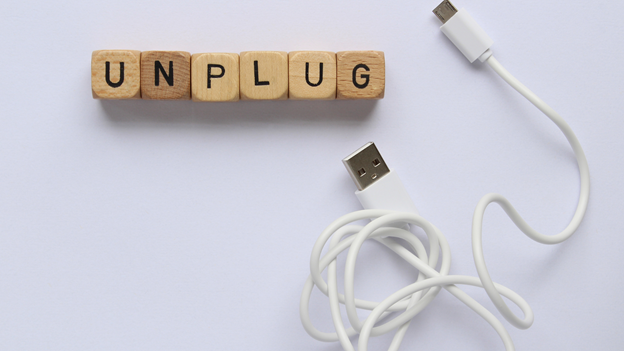
A detox from gaming is a proven and powerful treatment for gaming addiction. Similar to other behavioural addictions we are not literally ridding the body of toxins, but we are attempting to reduce or remove the addictive behaviour to lessen their affinity towards it. When someone suffers from a gaming addiction they are addicted to the dopamine and feeling of success or relaxation that comes with playing. It is scientifically proven that the more dopamine we are exposed to the more we are desensitised to it, hence more is required to reach the same level of enjoyment. This is where the likening of behavioural addictions being similar to drug addictions stems from.
The goal for detoxification programmes varies depending on the type of detox they are undergoing. Some believe that abstinence is the only cure, while others believe that through the removal of video games for an extended period, patients gain perspective on their life without it and can be trusted to play in moderation.
So what types of detox are available? Self-imposed limitations are the most common and pragmatic approach. These are gaining in popularity where addicts build up to removing video games from their life for 30,60 or 90 days depending on the severity of their addiction. Removal of video games also comes along with the removal of content that gives them similar satisfaction or could potentially act as a trigger, for instance watching streamers, let’s plays, and other gaming-related content.
30-day detoxifications are recommended for those whose symptoms are not as severe and already have a family support system in place as well as a fairly healthy work-life balance. The reason being is that this offers enough time to learn about their addictive behaviours and understand the harm it is causing. Whereas 90-day programmes are reserved for people with severe addictions that are causing serious quality of life problems. Taking 90 days away from video games offers all the benefits of a 30-day detox, as well as reducing the risk of relapse and allowing time for addicts to develop strategies to help their compulsive behaviour, all based on their understanding and treatments.
For those who require serious intervention due to comorbid conditions and cannot manage self-imposed limitations, there are inpatient centres and hospitals where there is limited or no access to gaming. These offer additional focus on learning to healthily cope with their diagnosed conditions. Here patients will work closely with therapists to make a lifelong recovery from gaming addiction.
In-Person Rehabilitation Programmes
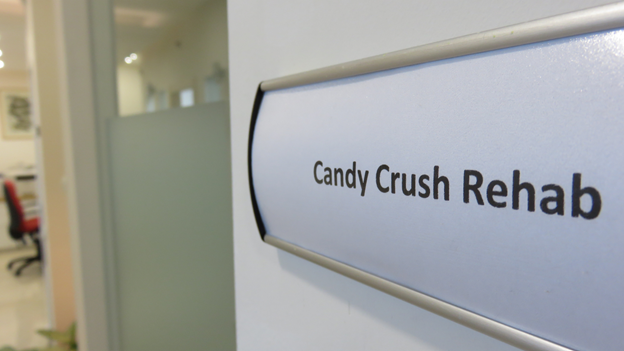
Rehabilitation centres are dedicated accommodations where individuals suffering from addiction can receive round the clock support. This is for people who are severely addicted to video games and require intervention to separate them from gaming.
These centres offer one to one therapy at scheduled times and a support network of fellow addicts also undergoing treatment. Access to the internet and digital devices will be limited during their stay in order to allow them the necessary time to recover. Some centres will offer overnight stays while others will only accommodate patients during the day.
Despite being a very effective method of treatment, dedicated rehabilitation centres are quite scarce and not always easily accessible to everyone. Not to mention that it can be quite costly to have an extended stay to overcome your addiction. However, this method of treatment has been adopted by the South Korean government opting to set up funded rehabilitation summer camps for students that may be suffering from video game addiction.
Similar to inpatient rehabilitation centres they are taught about their addiction, techniques on how to overcome it and focus on developing skills and finding pleasure outside of gaming. So if you have been experiencing serious symptoms of video game addiction then consider finding a local treatment centre.
Therapy

Therapy from a trained professional is one of the most effective treatments for gaming addiction. Their techniques are primarily based on CBT. Working with a therapist will be a one-to-one guide through a course of CBT using various exercises to overcome the negative thought patterns and habits. Therapists will also be trained to diagnose and treat any underlying comorbid conditions like anxiety and depression which have exacerbated the addiction. Undergoing therapy will be personalised to the individual so that the treatment is most effective and manageable for the patient’s recovery.
With this being said there are various forms of therapy used to treat gaming addiction which we will also run through.
Group Therapy
Support groups are available for sufferers of video game addiction and have shown great efficacy in many people’s recovery. These groups offer regular meetings with other video game addicts alongside a mediator or therapist. This allows the chance to listen to and share firsthand advice, talking about stories, struggles, and triumphs. Everyone’s journey is unique but it can be extremely motivating to realise that you are not alone. Encouragement from fellow recovering gaming addicts can be much more valuable and relatable than from anyone else.
Another benefit of group therapy is finding new friends and making good connections with other people. Often video game addicts will leave behind a lot of their social life when giving up gaming. Some will have even neglected their social life outside of gaming therefore this opportunity to build healthy friendships around new interests can help personal growth and find comfort elsewhere.
For those who may not have availability to local support groups, family support systems can offer great treatment for video game addiction. In young children especially, limitations set by parents and family members are great prevention for addictive behaviours to develop. Creating a sense of self-control and responsibility early on in a child’s life has significant long-term effects. Family support is not exclusive to children however, it is often loved ones who express concern and notify the affected individual of their addictive behaviour. By families learning about video game addiction and creating a safety net of guidance and encouragement, it can make all the steps towards recovery that much easier.
Family Therapy
This involves creating a support network of family and friends who can hold you accountable and motivate you to commit to your decisions to detox from video games. Overcoming an addiction can be a very lonely experience hence why it is important for an addict to surround themselves with people who are understanding, empathetic and helpful to their situation.
Those who have difficulties in forming a support system to engage in family therapy can also join local or online support groups.
Self Help Programmes
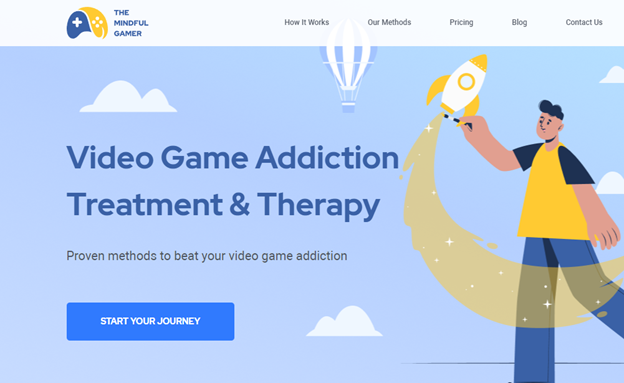
For those who are struggling to find help through family support and group therapy, self-help programmes are a great alternative. Whilst it’s still important to have in-person help. The guided audio lessons you can get from a self-help programme can offer great insight and motivation to overcome video game addiction.
Self-help programmes are online courses that incorporate the most useful techniques proven to help overcome video game addiction. This will include CBT, Mindfulness and ACT exercises in the form of guided audio lessons.
The benefits of using self-help programmes as one method of treatment are that they are affordable, can be used anywhere and are suitable to be used as an accompaniment to any other treatment that you might be receiving.
Prescription Medications

Although still in early clinical trials there is some sign that medication can help to alter brain chemistry and reduce the urge to play video games. A drug known as Buproprion has shown some promise by inhibiting norepinephrine and dopamine reuptake. Over a six-week trial addicts using the drug experienced fewer cravings to play video games.
Furthermore, a prescription medication used to treat any underlying comorbid conditions may reduce addictive symptoms also.
Finding The Right Treatment

Selecting the correct treatment that will be most effective for you is a difficult task, so here are some things you should consider when choosing.
- What is your budget like? Get a quote from a therapist and see if this lines up with your budget.
- What is your schedule like? Choose the treatment that fits your lifestyle. Your treatment should be comfortable and sustainable to have the most benefit over time.
- How do I learn best? Some people undergo therapy and are genuinely dissatisfied with the treatment. If you learn best by yourself or if you are an audio learner, maybe solutions such as online courses might be for you.
Ultimately try as many different treatments as possible to find the most effective treatment for you. Everyone’s journey is unique so do not be disheartened if something that works for another does not work for you. Find some security in knowing there are many video game addiction treatments out there, so help is never far away.








